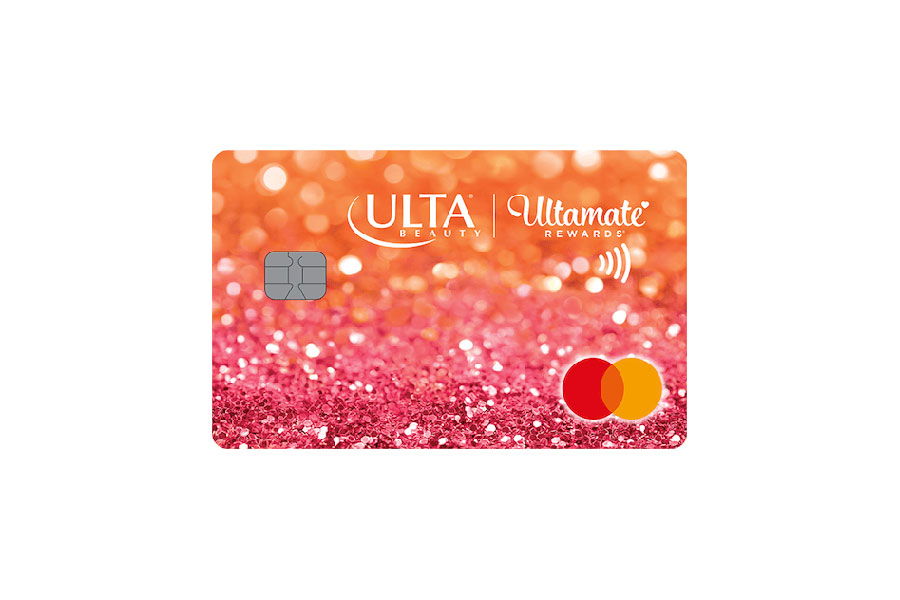Struggling with credit card debt? You’re not alone. High-interest rates and multiple due dates can make it tough to stay on top of payments.

Debt consolidation can help by rolling everything into one manageable payment—often at a lower interest rate. The right approach depends on your credit score, debt amount, and financial goals. Here’s how to find the best strategy for your situation.
5 Effective Ways to Consolidate Credit Card Debt
If credit card payments are becoming unmanageable, consolidating your debt can help simplify the process and reduce interest costs. The best method depends on your credit score, total debt, and ability to repay.
Here are five ways to consolidate credit card debt:
- Balance transfer credit card
- Low-interest debt consolidation loan
- Debt management plan
- Home equity loan or HELOC
- 401(k) loan
1. Use a Balance Transfer Credit Card
A balance transfer card lets you move multiple high-interest balances onto one card, often with a 0% APR introductory offer for 12 to 18 months. If you can pay off the balance before the promo period ends, you could save hundreds or even thousands in interest.
Pros
- Lower interest costs if you pay off the balance within the intro period
- One monthly payment instead of juggling multiple due dates
- Can improve your credit utilization ratio over time
Cons
- Balance transfer fees (typically 3% to 5%) apply
- You need good to excellent credit to qualify for the best offers
- If you don’t pay off the balance before the promo ends, you could face high interest rates
Who Should Consider It: This works best for people with strong credit and a plan to pay off the debt before the promotional period ends.
See also: How to Do a Balance Transfer on a Credit Card
2. Get a Debt Consolidation Loan
A debt consolidation loan lets you combine multiple credit card balances into a single fixed-payment loan, often with a lower annual percentage rate (APR). This can help you simplify payments and save on interest over time. These loans are available through banks, credit unions, and online lenders.
Pros
- Lower APR compared to credit cards
- Fixed monthly payments make budgeting easier
- Can improve your credit score by reducing credit utilization
Cons
- Requires good credit to qualify for the best rates
- Some lenders charge origination fees
- A longer loan term could mean paying more interest over time
Who Should Consider It: This is a good option for people with a stable income and a solid credit score who want to simplify their debt payments and reduce interest costs.
3. Enroll in a Debt Management Plan
A debt management plan (DMP) is a structured repayment program offered by nonprofit credit counseling agencies or debt settlement companies. They work with your creditors to lower interest rates and consolidate payments into one fixed monthly amount. These plans typically last three to five years and can help you pay off debt faster without taking out a personal loan.
Pros
- Lower rates negotiated by the credit counseling agency
- One fixed monthly payment instead of multiple bills
- Can help you become debt-free in three to five years
Cons
- Requires closing most or all of your credit cards
- Usually takes several years to complete
- Some agencies charge setup and monthly service fees
Who Should Consider It: This option is best for those struggling with high interest rates who need structured repayment help but don’t qualify for a low-interest debt consolidation loan.
4. Use a Home Equity Loan or HELOC
Homeowners can tap into their home’s equity to consolidate credit card debt through a home equity loan or a home equity line of credit (HELOC). These options typically offer lower interest rates than credit cards because they are secured by your home. A home equity loan provides a lump sum with fixed payments, while a HELOC works like a credit card with a revolving line of credit.
Pros
- Lower APRs compared to credit cards
- Can provide access to a larger loan amount
- Fixed monthly payments with a home equity loan make budgeting predictable
Cons
- Your home is used as collateral, meaning missed payments could lead to foreclosure
- Closing costs and fees can add to the overall expense
- The application process takes longer than other loan options
Who Should Consider It: This is best for homeowners with significant equity who are confident they can repay the loan and avoid taking on new debt.
See also: Best Home Equity Loans of 2025
5. Borrow From Your 401(k)
If you have a 401(k) retirement plan, you may be able to borrow against it to consolidate credit card debt. Most plans allow you to take out up to 50% of your balance, with a maximum loan amount of $50,000. Since you’re borrowing from yourself, there’s no credit check, and the interest you pay goes back into your retirement account.
Pros
- No impact on your credit score since it’s not a traditional loan
- Lower interest rates compared to credit cards
- No lender fees or third-party approvals required
Cons
- Drains your retirement savings, which could hurt your long-term financial security
- If you leave your job, the loan may become due immediately
- Unpaid balances can trigger taxes and early withdrawal penalties
Who Should Consider It: This should be a last resort for those who have exhausted other options and have a clear plan to repay the loan without jeopardizing their retirement savings.
How Credit Card Consolidation Impacts Your Credit
Credit card consolidation can affect your credit score in different ways, depending on the method you choose. Some options may cause a temporary dip, while others can improve your score over time.
- Balance transfer cards may slightly lower your score at first due to a new credit inquiry. However, making on-time payments can help improve your score over time.
- Debt consolidation loans can boost your score by reducing credit utilization and providing a structured repayment plan.
- Debt management plans can have a positive impact if payments are made consistently, as creditors may report the debt as “paid as agreed.”
- 401(k) loans and HELOCs generally don’t affect your credit history, but defaulting on a HELOC can put your home at risk.
Debt Consolidation vs. Debt Management
Debt consolidation and debt management both aim to simplify debt repayment, but they work in different ways. Understanding the differences can help you decide which option is right for your situation.
Debt Consolidation
Debt consolidation involves taking out a new loan or credit line to pay off multiple existing debts. The goal is to combine payments into one and secure a more affordable rate. Common options include unsecured personal loans, balance transfer credit cards, home equity loans, and HELOCs.
This option works best for people with good credit who qualify for low-interest rates and can manage regular loan payments.
Debt Management
A debt management plan is a structured repayment program offered by credit counseling agencies or debt relief companies. Instead of taking out a loan, the agency works with creditors to lower rates and consolidate payments into one fixed amount. These plans typically take three to five years to complete.
This option is better suited for those struggling with high interest rates who don’t qualify for low-interest loans but want a structured path to becoming debt-free.
If you have strong credit and steady income, debt consolidation may be a better option. If you need lower rates and a structured repayment plan, debt management could be the right choice.
When Credit Card Debt Consolidation Makes Sense
Credit card debt consolidation can be a good option when it reduces interest costs and makes repayment more manageable. If you have high-interest credit card debt or multiple monthly payments, consolidating can help simplify your finances.
Signs That Credit Card Consolidation Could Help
- You have multiple credit card balances with high interest rates.
- Your debt-to-income ratio, excluding your mortgage, is below 40%.
- You have a good credit score that qualifies you for a better rate.
- You can afford the new monthly payment and won’t need to take on more debt.
- You want to simplify payments by combining multiple debts into one.
When Consolidation Saves Money
If you’re paying APRs of 20% or more on credit cards, debt consolidation options such as credit card balance transfers or consolidation loans can help you save money and pay off debt faster. For example, moving a $10,000 credit card balance at 22% interest to a personal loan at 9% can significantly reduce interest charges over time.
Credit card consolidation can also make sense if you qualify for a balance transfer card with a zero percent introductory APR and can pay off the balance before the promotional period ends.
When Credit Card Consolidation Is a Bad Idea
While consolidation can help in the right circumstances, it’s not always the best choice. If it doesn’t lower your interest rate or improve your ability to repay, it could end up costing more in the long run.
Situations Where Consolidation Could Backfire
- Your credit score is too low to qualify for a better interest rate.
- You struggle with overspending and might rack up more credit card debt after consolidating.
- The fees associated with consolidation, such as balance transfer fees or loan origination fees, outweigh the benefits.
- You can only afford the minimum payments, making a long-term loan more expensive over time.
- You’re close to paying off your credit card debt already, and consolidation wouldn’t provide much benefit.
Common Mistakes to Avoid
One of the biggest mistakes is consolidating credit card debt without changing spending habits. If you continue using credit cards after consolidating, you may end up in a worse financial situation than before.
Another mistake is choosing a longer loan term just to get a lower monthly payment. While this may make payments easier in the short term, it can result in paying more interest overall. Always compare the total cost of consolidation before committing to a plan.
How to Prepare for Credit Card Debt Consolidation
Before consolidating your credit card debt, it’s important to assess your financial situation and compare your options. Taking the right steps upfront can help you secure better terms and avoid falling back into debt.
Steps to Take Before Applying
- Check your credit score to see what interest rates you may qualify for. A higher score increases your chances of getting a lower rate.
- Calculate your total debt by adding up balances across all credit cards and loans. This will help determine how much you need to consolidate.
- Review your monthly budget to ensure you can afford the new payment and avoid late fees.
- Compare loan options from banks, credit unions, and online lenders to find the best terms. Look at interest rates, repayment periods, and fees.
- Read the fine print on balance transfer credit cards, including the introductory APR period and any transfer fees.
- Avoid closing old credit accounts after consolidating, as this could negatively impact your credit score.
Tips for Avoiding New Debt After Consolidating
- Stick to a budget that prioritizes paying off your consolidated loan.
- Avoid using credit cards unless you can pay off the balance in full each month.
- Build an emergency fund to cover unexpected expenses, so you don’t rely on credit.
- Set up automatic payments to ensure you stay on track with your repayment plan.
Final Thoughts
Debt consolidation can be a helpful tool for simplifying payments and reducing interest costs, but it’s not a one-size-fits-all solution. The key is choosing a strategy that fits your financial situation and helps you stay debt-free in the long run.
For those who want to take a different approach, the debt snowball and debt avalanche methods offer alternative ways to tackle debt without taking out a loan. The debt snowball method focuses on paying off the smallest balances first for quick wins, while the debt avalanche method targets the highest interest debts to save money over time.
No matter which path you choose, having a plan in place to manage your finances and avoid new debt is the most important step toward long-term financial stability.
Frequently Asked Questions
Can I consolidate credit card debt if I have bad credit?
It can be more difficult to qualify for debt consolidation with bad credit, but options are still available. Some lenders offer personal loans for borrowers with lower credit scores, though the interest rates may be higher. Debt management plans may also be an option, as they don’t require a new loan.
Is it better to consolidate credit card debt or pay it off individually?
It depends on your financial situation. If you can qualify for a lower interest rate through consolidation, it can save you money and simplify payments. However, if your credit score prevents you from getting a favorable rate, paying off debt individually using methods like the debt snowball or debt avalanche might be a better option.
How long does debt consolidation take?
The timeline for paying off consolidated debt depends on the type of consolidation you choose. A personal loan or home equity loan typically has repayment terms of two to seven years. Debt management plans usually take three to five years. If you use a balance transfer card and pay off the debt before the promotion ends, it could be resolved in 12 to 18 months.
Can I still use my credit cards after consolidating debt?
This depends on the consolidation method you choose. With a balance transfer card or debt consolidation loan, you can usually keep your credit cards open, but it’s best to avoid running up new balances. If you enroll in a debt management plan, most creditors will require you to close your credit card accounts to participate.
Can I consolidate other types of debt along with credit card debt?
Yes, some consolidation options allow you to include other types of unsecured debt, such as medical bills and personal loans. However, most lenders focus specifically on credit card consolidation, so you’ll need to check their eligibility requirements before applying.




